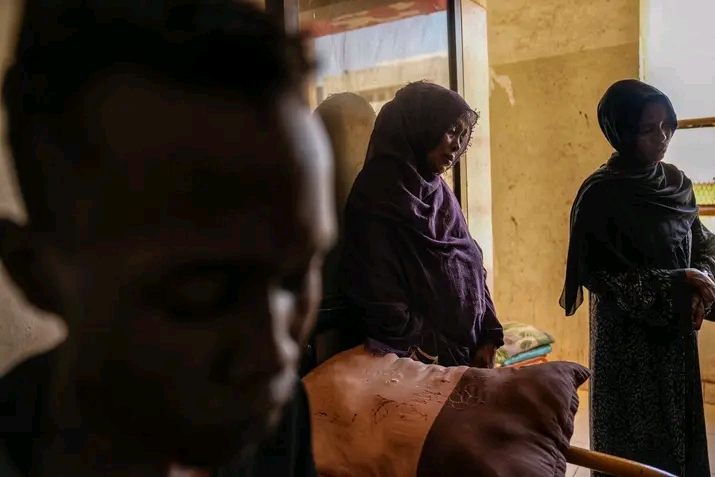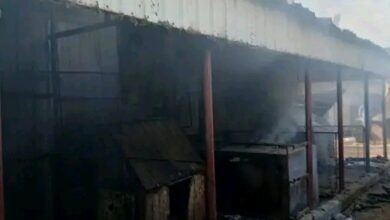Rising War Violations Intensify Psychological Trauma Among Sudanese Women
Omdurman – Report by Bakhita Zayed Al-Safi

For over two years, Sudanese women and girls have been paying a heavy price amid the brutal war. They have endured rape, random shelling from both warring sides, and witnessed widespread destruction, death, looting, forced displacement, and enforced disappearances.
As a result, thousands of women and hundreds of girls across various regions have suffered from psychological trauma, including depression, anxiety, fear, despair, and even suicide.
Resilience Amid Crisis
Sudanese citizen Najlaa Munir told Mashawir:
> “The intensifying fighting, artillery and aerial bombardment, and the rising rate of violations forced me to flee North Darfur to Northern State in search of safety.”
She recounte:
> “I endured a lot, moving from Nyala to El Fasher, then to the Tawila camp. At times, I accepted the reality and grew used to the sounds of shelling and gunfire.”
However, the humanitarian situation continued to worsen. Food and medicine became nearly unavailable due to a prolonged siege, and civilians were directly targeted by airstrikes and artillery.
Horrors of War
Munir explained that she was forced to flee with her three children, not only for safety and food but also because of the crippling cost of living and the loss of her savings, especially after losing her husband. Access to water was limited to donkey-drawn carts.
> “Our five-day displacement journey was agonizing—we walked long distances, rode on donkey carts, then vehicles, until we reached Northern State,” she said.
She added:
> “What broke me the most was witnessing violations, killings, and destruction. My mental health keeps deteriorating. My children are now fatherless, and I alone must carry the burden. They suffer deeply after seeing wounded civilians bleeding in front of them. How can they ever forget such horrors?”
Now, she hopes to find work in the Northern State once she settles, to support her family’s needs for food, education, and healthcare—though she acknowledges the struggle of starting over in an unfamiliar city.
Fear and Sexual Violence
Women’s rights activist Umm Salama Bakhit told Mashawir:
> “This war has caused one of the worst humanitarian crises in modern history. Its ongoing nature has deepened its impact on women and girls, who have suffered severe psychological trauma from constant fear, anxiety, and exposure to sexual violence, enslavement, and abduction. Their bodies have been turned into weapons of war.”
She explained that some women were injured by shrapnel, lost their homes, or had their possessions looted—leaving them in emotional shock and despair. Others, displaced and uncertain about their future, have taken on the burden of caring for their children entirely alone.
Bakhit emphasized that the conflict has economically devastated women, stripping them of jobs and income, especially in rural areas where women play a crucial role in agriculture and food security, contributing nearly 80% of food production. With the collapse of agriculture, these women now face starvation.
She warned that as the war spreads from Darfur and Kordofan to the Northern states—which are now being targeted by RSF drones—the risk of similar violations being repeated remains high.
> “Rape has become a weapon of humiliation with long-lasting psychological effects—requiring urgent medical and mental health intervention. Some victims and their relatives have taken their own lives, while others were killed by family members after being raped.”
Urgent Response Needed
Bakhit continued:
> “What women and girls endured is enough to drive anyone mad—especially those who became pregnant as a result of rape or forced marriage. Survivors urgently need mental health support and regular psychological follow-ups, particularly as they begin returning to their homes.”
She lamented the shutdown of mental health centers, warning of severe consequences if left unaddressed.
Widespread Psychological Disorders
Mental health expert Maysoun Al-Taj told Mashawir:
> “The war has burned Sudanese women and girls. Violations committed—especially by the Rapid Support Forces—have triggered a spike in mental disorders. Victims lost their privacy in overcrowded displacement camps and suffered from gang rape, verbal abuse, and unwanted pregnancies. The legal system has failed to protect them.”
She highlighted that young girls were often married off to RSF fighters in exchange for money, as their families lacked the power to refuse. Some women witnessed the killing of their husbands or children, leaving them deeply traumatized.
Al-Taj stressed the need to support returnees in recently liberated areas and to reactivate mental health facilities. Displaced people overall have experienced extreme hardships and require social and economic reintegration, including support for small-scale livelihoods.
Deepening Tragedies
Naemat Abu Bakr, Sudan Program Coordinator at the Strategic Initiative for Women in the Horn of Africa (SIHA), said:
> “Sudanese women have endured deeply complex tragedies due to this war—particularly displacement and sexual violence, which have been widely documented.”
She added:
> “As the conflict expands, women and girls continue to face rape, a horrific crime they will struggle to overcome, especially younger victims. Cases of enforced disappearance are also rising, and many women are still missing.”
In RSF-controlled areas, women were subjected to sexual slavery and exploitation, severely affecting both their physical and psychological health.
Abu Bakr concluded:
> “Protecting women must now become a core issue—and all organizations advocating for women must rally around it. They are in urgent need of action, especially given the absence of local actors working on these issues amid the ongoing conflict.”




